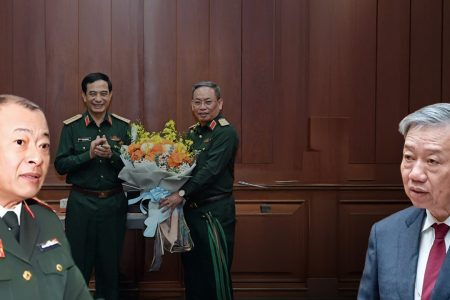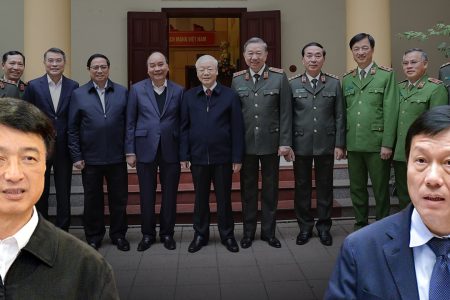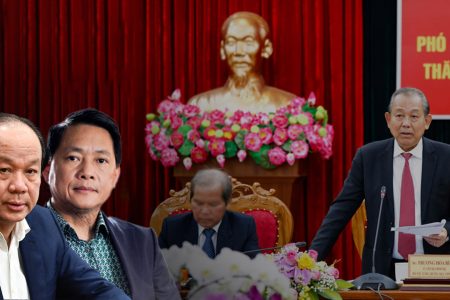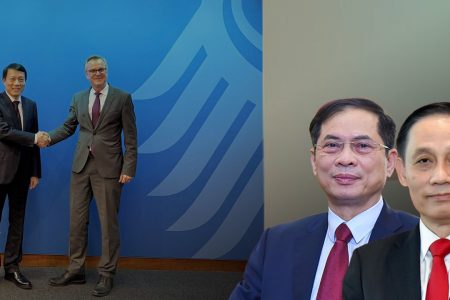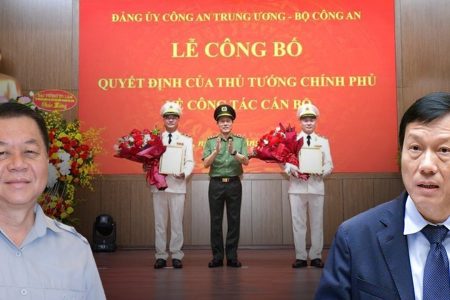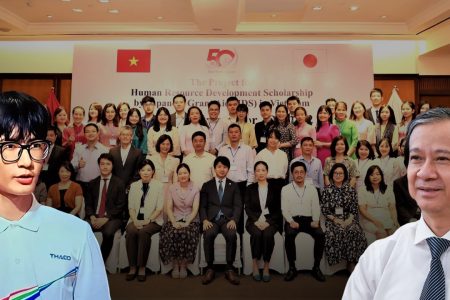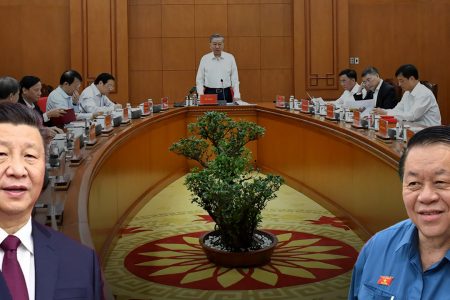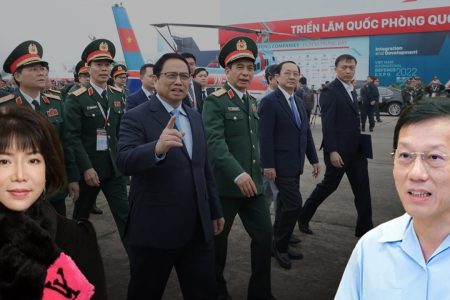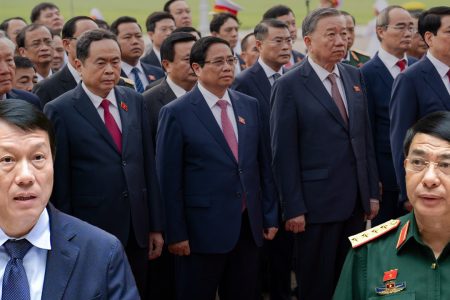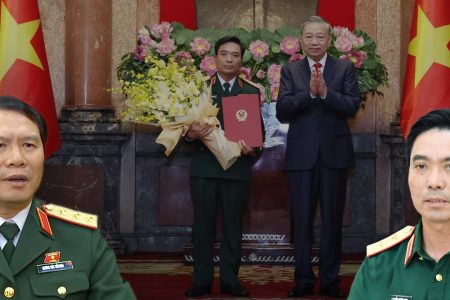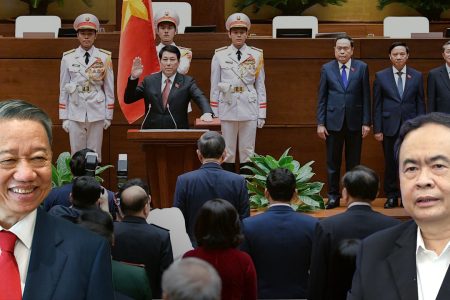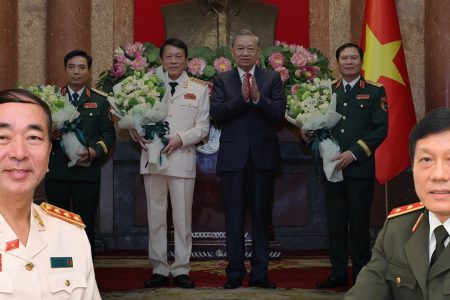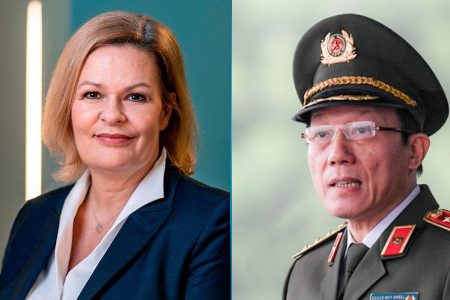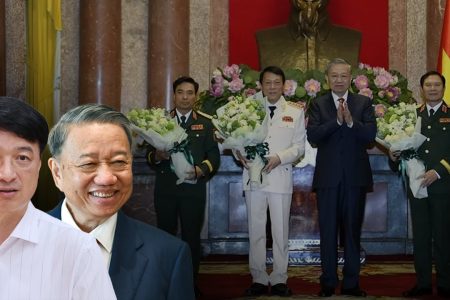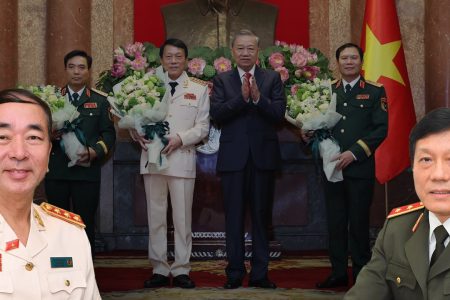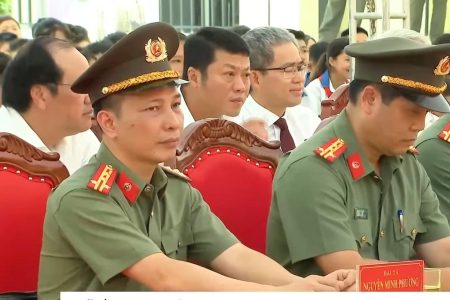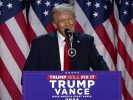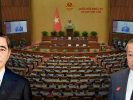
Vietnam’s National Assembly in the 2021-2026 term will strive to have 25-50 independent legislators, that is they are not members of the ruling Communist Party of Vietnam (CPV).
Mr. Tran Van Tuy, head of the Delegate Working Committee under the National Election Council, said the information just stated at the first consultation meeting to introduce candidates for the country’s highest legislative body National Assembly on February 4, 2021.
Responding to RFA from Thanh Hoa on February 5, Mr. Le Van Cuong, former deputy head of the delegation of the National Assembly of Thanh Hoa province, said:
“In the previous terms, there were a few independent legislators so the public wants more and more non-party legislators to represent the voice of the people in many fields. However, the process of going through the negotiation preparation steps, based on the standard conditions to increase the number of non-party members, however, through the reality, each specific person has difficulty, not widely agreed, so the results were not as expected. So this time, before the parliament election, the country’s leadership requested to work on increasing the number of independent legislators to meet the expectations of the people.”
Mr. Tuy also said that the Standing Committee of the National Assembly expected the number of representatives of the 15th National Assembly to be 500 legislators. The number includes 207 members at the central level and 293 from provinces and cities. However, in the past, for those who self-nominated for the National Assembly as non-party members, it was very difficult to be being included in the candidate list in localities.
Lawyer Vo An Don, who twice self-nominated for the National Assembly as an independent candidate, when answering RFA from Phu Yen on February 5, recounted the reality that he encountered:
“In 2011 I was the first to self-nominate for the National Assembly, I was also the first person to be a non-party candidate in Phu Yen. At that time, they consulted voters in my village, it was 100%, but in the second round, it was unclear why they excluded me. The second time I nominated myself was in 2016, this time people were afraid of me, they said I was very dangerous for the regime. And when consulting local residents in my area, they do not inform the people, there were a few people while the majority were strangers. I think the security team came to take a vote, then people went to denounce me, talking about all kinds of bad things about me. After voting, they held the votes to count. As a result, I was eliminated from the first round.”
According to lawyer Vo An Don, the National Assembly said in the press only, in fact never had. In Vietnam, non-party members have no chance, if they do they just play the role of the independent, but actually, they are members of the Communist Party of Vietnam.
In 2016, when the 14th National Assembly election took place, for the 2016-2021 term, a self-nominated movement appeared by independent candidates to the National Assembly and People’s Councils at all levels nationwide in Vietnam. Although the true non-party candidates at that time did not win the election, public opinion at that time all thought that the act of self-nominating for the National Assembly was a success for those who wanted to exercise their citizenship.
Dr. Nguyen Quang A, who was a self-nominated candidate for the 14th National Assembly, term 2016-2021, when answering RFA from Hanoi on February 5, commented on the announcement of an effort to increasing non-party members of the National Assembly this year:
“I think it’s possible and maybe not, because whether it’s inside or outside the party, they have to make arrangements. Because there are many types of non-party members, some people actually carry out-of-party labels, but they still go to the party meeting somewhere, no one will know. I know a person who used to be like that, outside the party, a private enterprise, but at the meeting, he still participated in regular meetings of a certain party unit. That means even if there are a few dozen people, but say that if not party members, those people also have to go through their four-year screening. To make sure they can play a role of decorating the regime.”
According to Dr. Nguyen Quang A, as long as there is no real change in the Election Law, it will be entirely due to the Vietnam Fatherland Front, the right arm of the party, the so-called “consensus.” But “consensus” means negotiating with each other, negotiating something, but he really thinks that the word “consensus” here doesn’t mean “consensus.” He explained:
“It doesn’t mean ‘consensus’ because only they decide what ‘to consensus’ with. So as long as there’s no real change to the Election Law in Vietnam, it’s all elected by the party.”
In 2016, independent candidates in Hanoi met many difficulties in making their own application for National Assembly. Things such as making their own profiles, including candidacy, resume, brief biography, asset, and income declaration … until the time of applying for certification seal at the People’s Committee of the commune or ward level was difficult. Not to mention that the candidates were disciplined for taking part in protests against China and allegedly accused of disrupting order. Many people also said that the Security Agency provided their files to the ward People’s Committee to make it difficult.
Professor Nguyen Dinh Cong, a member of the Communist Party of Vietnam but has abandoned the party a long time ago, telling RFA on February 5 from Hanoi that “striving to have 25-50 non-party legislators” is a plan with goodwill but contains a dictatorial nature and lacks science. He cited:
“The dictatorship is at the following points:
1-Election of the National Assembly is voters choosing their representatives. People like anyone, then vote. How to structure and quantify the number of non-party winners? The person who sets the structure wants to practice imposition. In the election, the organizers can only take the initiative in making the list of candidates and regulating the number of candidates to be elected. When making a list of candidates that have a structural intention to guide voters to elect ones or eliminate others is illegal.
2-The most important in the election is the self-nomination and running. The Front is essentially an extension of the Party. The fact that the Front reserves the right to introduce candidates to the nominee list (which people argue is to introduce candidates) is an arbitrary demonstration of the “party elects.” Delete this and let everyone run for themselves. There should be an equal chance for all candidates.”
As for the lack of science, according to Professor Nguyen Dinh Cong, voting for whom is the right and the will of the voters. Only after having the results, making statistics, and summarizing how many party members and non-party members have been elected. Before the election, if we want to have 50 non-party members elected, what should we do and what measures should we do? One can predict the outcome of the election after a period of lobbying and surveying. Before organizing the election, the structure is expected to be a will-only job, lacking science. He continued:
“As expected by the Standing Committee of the National Assembly, in the near future there will be more non-party members elected to the National Assembly, but who are they, whether by the Front’s selection, nomination, or the elite of the people self-nominating. They are more likely to be chosen and only for decoration. So 50 or more is for nothing.”
Professor Nguyen Dinh Cong said that in order to have a National Assembly that is truly representative of the people, fundamental reforms are needed, not just doing some kind of deceitful work.
According to the web portal of the National Assembly, the 14th National Assembly of Vietnam, term 2016-2021, was elected on May 22, 2016, with 496 delegates. There were 21 non-party members elected to the National Assembly, accounting for 4.20% of the total number.
Thoibao.de (Translated)



